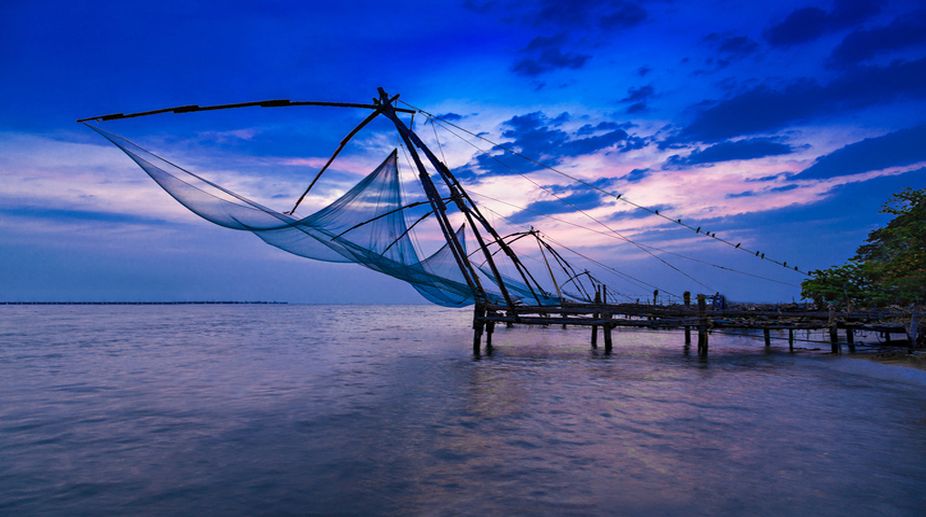Sri Lankan Navy arrests nine fishermen from TN’s Pudukottai
The incident took place on Wednesday night when the fishermen had gone to sea for fishing in two mechanized boats.

Representational Image (PHOTO: GETTY IMAGES)
India’s immediate reaction to the Sri Lankan Navy’s shooting dead one fisherman and injuring two in the Palk Strait off the coast of Rameswaram last Monday was to apprehend a Sri Lankan trawler registered in Trincomalee fishing off the coast of Nagapattinam on Tuesday, arrest its crew numbering 10, and have the Coast Guard seize the boat. When the Rameswaram fishermen surrounded by the Sri Lankan Navy sent a distress call to the Coast Guard station, there was no response, according to P Sesuraja, president of the Rameswaram Fishermen’s Association. During Mahenda Rajapaksa’s presidentship of Sri Lanka and when the Eelam war was on, his Navy was in the habit of shooting at fishing boats from Tamil Nadu without let or hindrance. More than 600 Indian fishermen had fallen victim with hardly any adequate response from New Delhi. While the reformist government of Maithripala Sirisena put an end to shooting of Tamil Nadu fishermen by his Navy, his Prime Minister Ranil Wickremesinghe had publicly defended their government’s right to shoot at Indian fishermen poaching in their territorial waters. It is to Wickremesinghe that the Indian High Commissioner in Colombo made a representation expressing New Delhi’s “deep concern” at the killing of the Tamil Nadu fisherman, the first since the new Sri Lanka government assumed office in January 2015. Wickremesinghe admitted authorising the Navy to “counter poaching activities” of fishermen from Tamil Nadu by arresting them and seizing their boats, but maintained it was not authorised to open fire on them.
Only on 2 January both India and Sri Lanka agreed to prevent “physical harm” to fishermen found poaching in each other’s territorial waters and to open a hotline for quick discussion and response to crises. Such measures are not going to solve the problem. What is needed immediately is for New Delhi to read out the text of the 1974 treaty under which India ceded a part of Rameswaram district, the uninhabited tiny islet of Kachchathivu, to Sri Lanka, with full authority to fishermen from Tamil Nadu to fish in and around its waters in perpetuity and to use its land to dry their nets. This right was not negated by the subsequent 1976 agreement redrawing the maritime boundary between the two countries under which much of the Palk Strait, where Kachchathivu is located, comes under Sri Lanka. The reiteration of Tamil Nadu fishermen’s rights in waters around the islet in the preamble of the 1976 agreement indicates Sri Lanka’s right is not absolute. The cession of Kachchathivu has been challenged in the Supreme Court of India as the government of the day violated Article 3 of the Constitution by not seeking approval of Parliament. J Jayalalithaa, the late Chief Minister of Tamil Nadu, won the 1991 Assembly election on the promise of, among other things, taking back Kachchathivu from Sri Lanka.
Advertisement
Advertisement